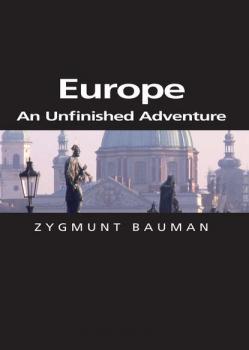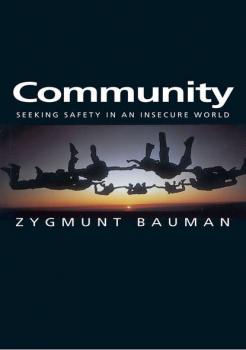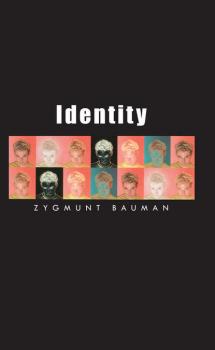Социология
Различные книги в жанре СоциологияFoucault
This work provides an introduction to the work of Michel Foucault. It offers an assessment of all of Foucault's work, including his final writings on governmentality and the self. McNay argues that the later work initiates an important shift in his intellectual concerns which alters any retrospective reading of his writings as a whole. Throughout, McNay is concerned to assess the normative and political implications of Foucault's social criticism. She goes beyond the level of many commentators to look at the values from which Foucault's work springs and reveals the implicit assumptions underlying his social critique. The author also provides an account and assessment of recent literature on Foucault, including that of Habermas and Taylor. She discusses Foucault's position in the modernity/postmodernity debate, his own ambivalence to Enlightenment thought and his place in recent developments in feminist and cultural theory.
Hayek
Hayek has been one of the key liberal thinkers of the twentieth century. He has also been much misunderstood. His work has crossed disciplines – economics, philosophy and political science – and national boundaries. He was an early critic of Keynes, and became famous in the 1940s for his warnings that the advance of collectivism in western democracies was the road to serfdom. He was a key figure in the post-war revival of free market liberalism and achieved renewed notoriety and some political influence in the 1970s and 1980s as one of the chief intellectual inspirations for the New Right in Britain and the United States. This book traces Hayek's intellectual formation in Austrian economics and English liberalism. It analyzes the main themes of his thought such as the idea of a market order, the nature of knowledge, the limits of government, and his critiques of socialism and conservatism, and assesses the originality and internal coherence of his account of liberalism and modernity as well as his interventions in policy debates. It argues that Hayek the social scientist has to be disentangled from Hayek the ideologue in order to appreciate the importance and implications of some of his insights into the nature of modern societies. As a critical guide to one of the most influential thinkers of our times, this book is an indispensable source. It will be of interest to students in politics, economics and philosophy, as well as to all those interested in a comprehensive introduction to one of the most controversial thinkers of the twentieth century.
Timewatch
In this book the author moves beyond the time of clocks and calendars in order to study time as embedded in social interactions, structures, practices and knowledge, in artefacts, in the body, and in the environment. Adam suggests ways not merely to deconstruct but to reconstruct both common-sense and social science understanding.
Excess
Over-consumption is one of the key issues of our time, especially in the Western world. Over the past decade, in the face of historically unprecedented levels of consumer spending in the West – and the more recent impact of recession – a vigorous politics of anti-consumerism has emerged in a range of wealthy nations. This timely and original new book provides a comprehensive overview and analysis of what has come to be called the 'new politics of consumption'; a politics embodied in movements such as culture jamming, simple living, slow food and fair trade. The book offers an examination of anti-consumerism at a time when the idea of 'consumer excess' is being re-framed by a global economic downturn, and crucially explores what this means for the future of political debate. Drawing on interviews with activists across three continents, and offering a refreshingly accessible discussion of contemporary commentary and theory, Kim Humphery sympathetically explores anti-consumerism as cultural interpretation, lifestyle change, and collective action. Whilst analysing the positive advances of the anti-consumerist movement, Excess also challenges contemporary critical thinking on consumption, taking issue with the return to theories of mass culture in contemporary anti-consumerist polemic. Alternatively, Humphery begins to forge a politics of anti-consumerism that addresses the complexity of material acquisition and which avoids treating consumers as mere dupes in the logic of capitalism, viewing them instead as active participants in a culture which is capable of transformation.
Europe
More than ever before, our conflict-ridden, drifting planet needs the qualities that Europe, unique among the continents, has developed in more than two millennia of history: its self-criticism, its urge to self-transcendence, exploration and experiment, its conviction that alternative and better forms of human togetherness can be achieved, as well as its dedication to the cause of seeking and promoting this improvement in practice. But today Europe is unsure of itself and its place in a fast-changing world; it is devoid of vision, limited in resources and lacking the will to pursue its vocation. It is also struggling with the consequences of a one-sided process of globalization which is divorcing power from politics, inciting the shift from the social state to security-focused governance and piling up the casualties of uncontrolled market expansion and the ethically blind commercialization of human life. Bauman argues that despite the odds Europe still has much to offer in dealing with the great challenges that face us in the twenty-first century. Through sharing its own hard-won historical lessons, Europe can play a vital role in moving from the Hobbesian-like world in which we find ourselves today towards the kind of peaceful unification of humanity that was once envisioned by Kant.
Community
'Community' is one of those words that feels good: it is good 'to have a community', 'to be in a community'. And 'community' feels good because of the meanings which the word conveys, all of them promising pleasures, and more often than not the kind of pleasures which we would like to experience but seem to miss. 'Community' conveys the image of a warm and comfortable place, like a fireplace at which we warm our hands on a frosty day. Out there, in the street, all sorts of dangers lie in ambush; in here, in the community, we can relax and feel safe. 'Community' stands for the kind of world which we long to inhabit but which is not, regrettably, available to us. Today 'community' is another name for paradise lost – but for a paradise which we still hope to find, as we feverishly search for the roads that may lead us there. But there is a price to be paid for the privilege of being in a community. Community promises security but seems to deprive us of freedom, of the right to be ourselves. Security and freedom are two equally precious and coveted values which could be balanced to some degree, but hardly ever fully reconciled. The tension between security and freedom, and between community and individuality, is unlikely ever to be resolved. We cannot escape the dilemma but we can take stock of the opportunities and the dangers, and at least try to avoid repeating past errors. In this important new book, Zygmunt Bauman takes stock of these opportunities and dangers and, in his distinctive and brilliant fashion, offers a much-needed reappraisal of a concept that has become central to current debates about the nature and future of our societies.
Identity
This topical new book by Zygmunt Bauman explores the notion of identity in the modern world. As we grapple with the insecurity and uncertainty of liquid modernity, Bauman argues that our socio-political, cultural, professional, religious and sexual identities are undergoing a process of continual transformation. Identities the world over have become more precarious than ever: we live in an era of constant change and disposability – whether it's last season’s outfit, or car, or even partner – and our identities as a result have become transient and deeply elusive. In a world of rapid global change where national borders are increasingly eroded, our identities are in a state of continuous flux. Identity – a notion that by its very nature is elusive and ambivalent – has become a key concept for understanding the changing nature of social life and personal experience in our contemporary, liquid modern age. In this brief book, Zygmunt Bauman explains compellingly why this is so.
Territory
This short introduction conveys the complexities associated with the term «territory» in a clear and accessible manner. It surveys the field and brings theory to ground in the case of Palestine. A clear and accessible introduction to the complexities associated with the term «territory». Provides an interdisciplinary survey of the many strands of research in the field. Addresses specific areas including interpretations of territorial structures; the relationship between territoriality and scale; the validity and fluidity of territory; and the practical, social processes associated with territorial re-configurations. Stresses that our understanding of territory is inseparable from our understanding of power. Uses Israel/Palestine as an extended illustrative case study. The author’s strong legal and geographical background gives the work an authoritative perspective.
Place
This text introduces students of human geography to the fundamental concept of place, marrying everyday uses of the term with the complex theoretical debates that have grown up around it. A short introduction to one of the most fundamental concepts in human geography Marries everyday uses of the term «place» with the more complex theoretical debates that have grown up around it Makes the debates intelligible to students, using familiar stories as a way into more abstract ideas Excerpts and discusses key papers on place by Doreen Massey and David Harvey Considers empirical examples of ways in which the concept of place has been used in research Teaching and learning aids include an annotated bibliography, lists of key readings and texts, a survey of web resources, suggested pedagogical resources and possible student projects
Modernities
Taylor develops a geohistorical argument which focuses on the periods and places of modernities, offering a grounded analysis of what it is to be modern. He identifies three 'prime modernities' which have defined the development of our modern world: today's consumer modernity preceded by the industrial modernity of the nineteenth century which was itself preceded by mercantile modernity.









